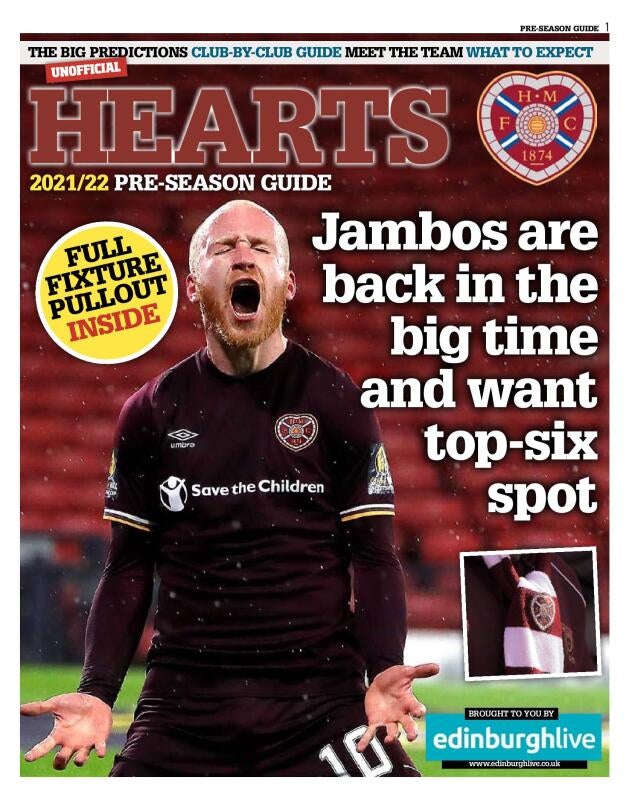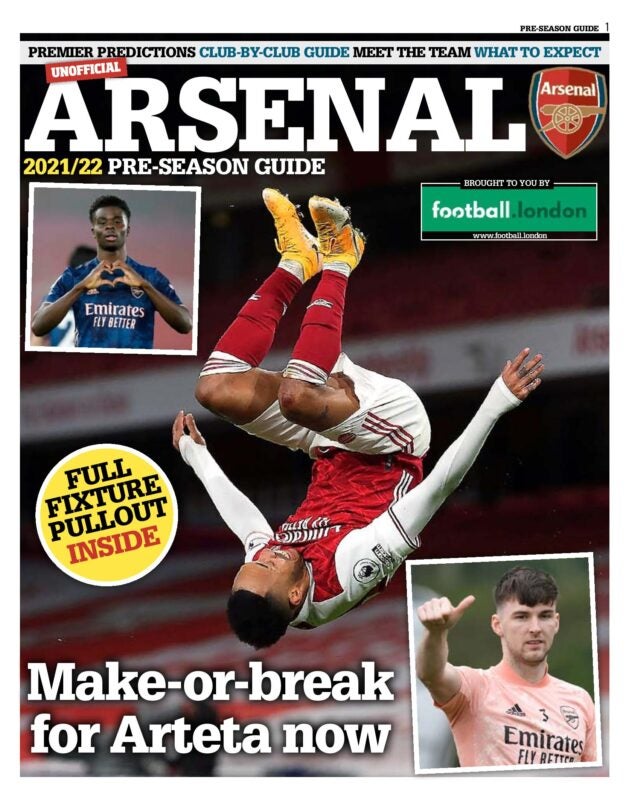
Reach is delving more into who its readers are – rather than what or where – in its mission to build deeper relationships and engagement.
Two of the ways it is doing this are trying out new styles of email newsletters and putting out special print editions, such as the 41 pre-season football guides that went out to registered users earlier this month.
Reach chief audience officer David Higgerson (pictured) told Press Gazette that many of the publisher’s newsletters are still daily news updates with collections of headlines. Soon, daily authored newsletters will begin being trialled in some areas positioned as a “window on the world of that town or city”.
Some short-term newsletter series have recently proved successful, such as those based around Euro 2020 or the Olympics with others coming up based around popular TV shows.
Others will increasingly tap into “things that are very important to how people define themselves”, Higgerson said, who teased that these will begin being scaled up quickly over the next few weeks.
“I think as an industry we spend a lot of time talking about what our readers are – they’re based in the north, they vote Labour, that they read print,” he said as an example. “We probably don’t spend enough time talking about who our readers are.” He added that this would create a “much deeper” relationship.
Two already launched are the Manchester Evening News’ weekly LGBTQ+ Bulletin and Grace, a newsletter run by Reach’s South West audience and content director Jacqui Merrington aimed at telling inspiring women’s stories.
Although these newsletters are largely run by regional journalists with an interest in the subjects at hand, they take stories from all over Reach’s network, including its national sites, and are promoted to readers across the country.
“It’s taking our scale and creating a deeper sense of engagement – that could be that you’re a Wales Online reader, a Mirror reader or Belfast Live reader and through the way that we tag our content we can make sure that you’re getting the opportunity to sign up to the newsletters that we think will really interest you,” Higgerson said.
‘Certainly scale helps’
Could other publishers do the same, or is Reach’s scale – with 800m monthly page views on its regional websites – crucial to making this work?
Higgerson, who noted that journalists should not be shy of calling readers their customers, said: “The deeper that relationship with readers, the far more likely you are to be able to generate sufficient income to be sustainable in the future.
“Certainly I think scale helps, but I think it’s scale that has to be grown over a period of time – you can’t just switch on a tap and suddenly expand rapidly and expect to have that depth of connection with readers because it just doesn’t work like that. It needs to be done over a period of time.”
Since January 2020 Reach has grown from having between 200,000 and 300,000 people signed up to email newsletters from its brands across the country. It now has around 4m signed up to 250 different emails that go out each week.
Newsletters are now the fifth biggest referral of traffic to Reach’s regional network of Live websites, Higgerson said.
They, therefore, became an increasingly important part of Reach’s customer value strategy, which launched at the start of 2020 to encourage more readers to hand over information about themselves such as their email addresses or postcodes. This enables the publisher to find out more about them, show them more stories and products they may be interested in, and better target advertising.
Higgerson said this was resulting in “repeat usage and engagement which we haven’t seen before” and meant page view growth is “massively outstripping” unique visitor increases as each reader comes back more often.
Last month Reach said registrations were at 6.7m across its national and regional network, 150% higher than a year ago. It is confident of reaching its target of 10m by the end of 2022.
Higgerson said Reach’s newsletters saw a step change when they started moving away from automating send-outs of the latest headlines to introducing more editorial decisions similar to talking about what to put on a website homepage or newspaper front page.
[Read more: Most journalists see AI robots as a threat to their industry – This is why they are wrong]
“One of the things we’re learning is automation is great, but automation isn’t always the best way to do things,” he said. “Just because you can automate something doesn’t mean that you should do so.”
Higgerson added: “I started on a free weekly and the mantra always was just remember that we’re going through people’s doors uninvited and that always led our thinking – and while we are invited to people’s email inboxes, we have to remember that we need to constantly earn the right to be going to people’s email inboxes and it has to be news that they can trust, news that they rely on, and news that is relevant to them.”
Higgerson said he is “very excited” about where Reach’s newsletters are going next, with many already more than doubling industry average open rates (roughly 20%).
This even includes the newer online-only brands – Reach has a few thousand people on its subscriber base for Skegness and an open rate of 65%, while Cheltenham Live, which launched on Gloucestershire Live earlier this year, has a rate of about 50%.
Using print to build ‘deeper relationship’
Meanwhile Reach is also harnessing print to boost reader engagement, most recently by producing pre-season guides for 41 football clubs around the UK.
Tens of thousands of new customers registered with Reach newsletters to get the free guides in the publisher’s traditional territory like Liverpool and Leicester as well as new online-only markets such as Bournemouth, Brighton and Portsmouth.
The idea was piloted with a paid-for promotion special for Leeds United last year, where Reach is online-only with the four-year-old Leeds Live. Higgerson said retention rates from that were “much stronger” than they are through other channels.
He said this shows the “important role print has to play” in the customer value strategy and shared excitement about the project even though “it would be a stretch to describe print as an innovation”.
He elaborated: “With this product we are using print to hopefully start a deeper relationship with readers and I guess that traditionally isn’t what we’ve done with print.” Previously most readers would pick up a print paper on the newsstand and the company would have no way of finding out anything about them.
Reach is now looking at doing similar things with other sports but has no definite plans yet.
More local news providers ‘creates a bigger pie’
Meanwhile Reach has been rapidly expanding. It now employs more journalists than it did in 2019 despite redundancies last year as it has changed focus to specialist digital roles, and it expects to employ more journalists than it has for a decade by the end of this year.
Reach also expects to be covering every county in England and Wales for the first time early next month, whether with their own websites or sub-brands within existing sites, with the launch of Oxfordshire Live.
Traditionally Oxford was a Newsquest patch with the Oxford Mail and its sister titles. Other recent launches have also appeared as challenges to incumbent newsbrands in their territories, such as Archant in Norfolk and Suffolk and Newsquest in Wiltshire.
However Higgerson said it was “really arrogant” to think readers should only get news from the publisher that has always been there.
“Actually if the internet has taught us anything it’s that people will get their news from wherever they want to get their news from,” he said. “Just as many people will get their news from swapping it with mates on Facebook as well from the incumbent publisher in a marketplace.
“So how we’ve approached the launch is we’re not trying to take on anybody when we launch in an area. We think we do local news a certain way, we think it’s very popular, we’ve got the audience data to back that up, we think it engages people in a way that we haven’t seen before.”
He added that having more local news websites in a marketplace “just creates a bigger pie overall. It doesn’t necessarily take away from one publisher to another publisher. The more local news is in a marketplace, the better.
“It’s not a criticism of Newsquest in Bournemouth that we’ve launched Dorset Live, it’s the fact that we think we can do something differently.”
Picture: Reach
Email pged@pressgazette.co.uk to point out mistakes, provide story tips or send in a letter for publication on our "Letters Page" blog




